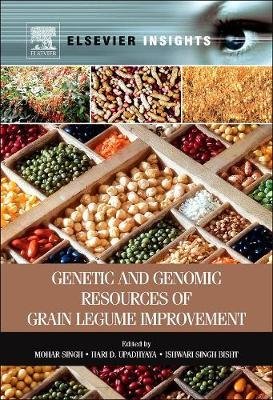Grain legumes, including common-bean, chickpea, pigeonpea, pea, cowpea, lentil and others, form important constituents of global diets, both vegetarian and non-vegetarian. Despite this significant role, global production has increased only marginally in the past 50 years. The slow production growth, along with a rising human population and improved buying capacity has substantially reduced the per capita availability of food legumes. Changes in environmental climate have also had significant impact on production, creating a need to identify stable donors among genetic resources for environmentally robust genes and designing crops resilient to climate change. Genetic and Genomic Resources of Grain Legume Improvement is the first book to bring together the latest resources in plant genetics and genomics to facilitate the identification of specific germplasm, trait mapping and allele mining to more effectively develop biotic and abiotic-stress-resistant grains. This book will be an invaluable resource for researchers, crop biologists and students working with crop development.


